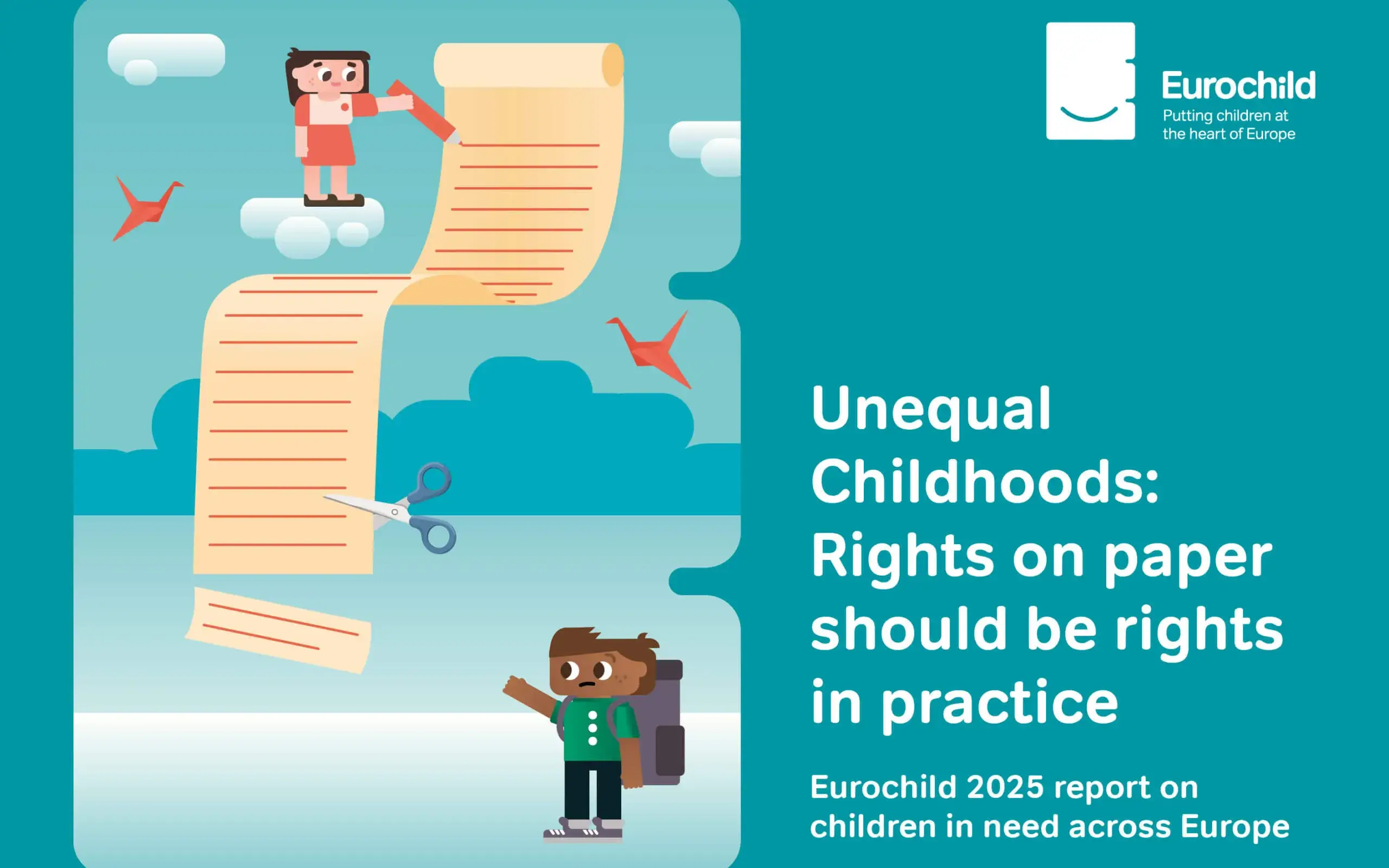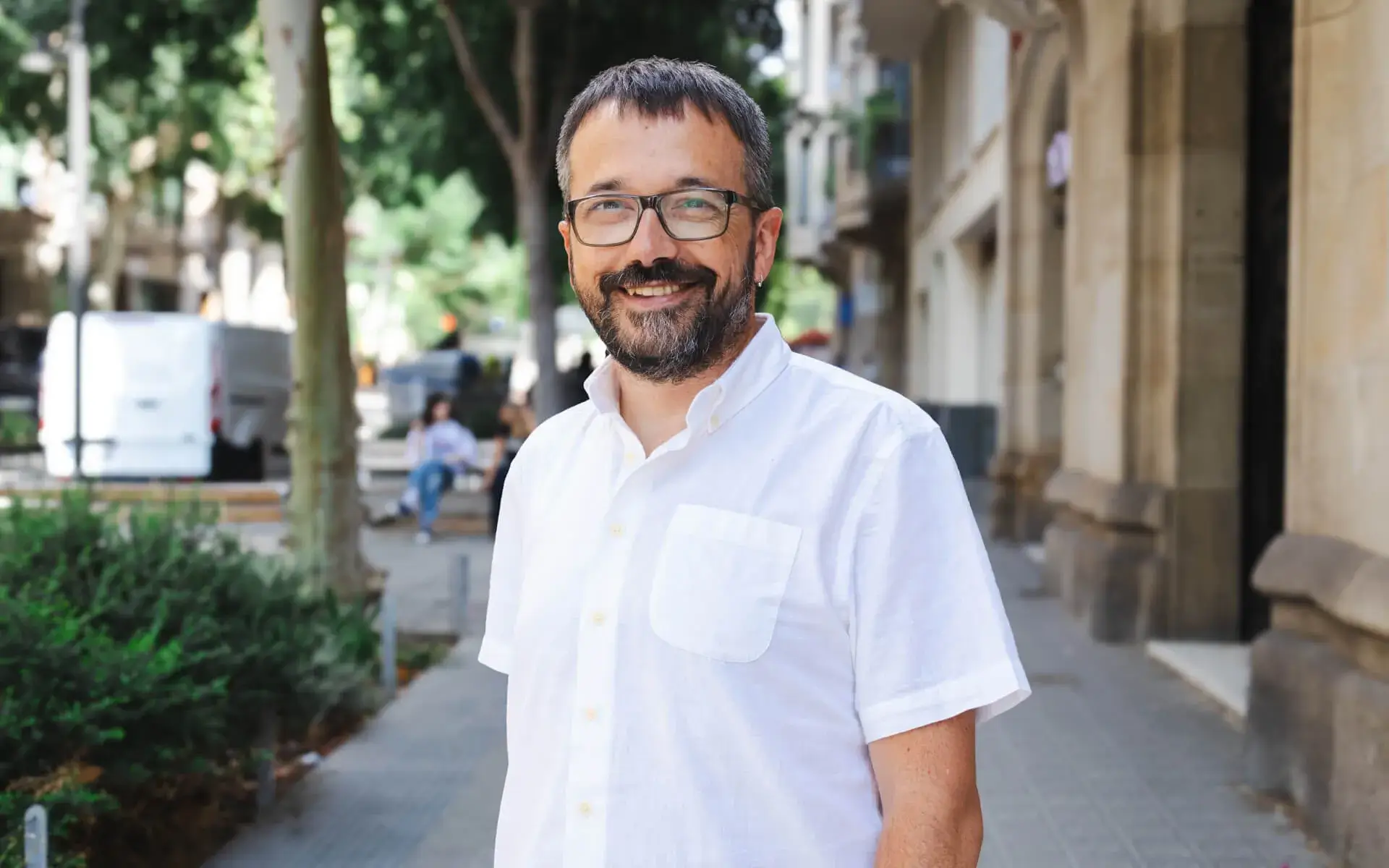Eurochild has supported UNICEF’s emergency response work to the invasion of Ukraine to support coordination efforts with the Ukrainian Ministry of Social Policy, the EU and Member States to address issues facing unaccompanied and separated children fleeing Ukraine and arriving in the European Union (EU).
The analysis
As Ciaran O’Donnell, Stela Grigoras and Ina Verzivolli explain, the first analysis has being based on a
mapping carried out by Eurochild & UNICEF ECARO from national-based sources across 13 countries: Czech Republic, Estonia, Germany, Greece, Hungary, Italy, Latvia, Lithuania, Poland, Romania, Slovakia, Spain and the United Kingdom.
The analysis examines the laws and policies at national level for children in alternative care and unaccompanied and separated children from Ukraine who arrive in these 13 countries.
This information was provided through a collaborative effort from expert stakeholders, including government authorities from 7 countries, UNICEF country offices from 9 countries, national civil society organizations from 9 countries and SOS Children’s Villages and Terres des Hommes, international civil society organizations.
Child custody
In particular, it focuses on the priority issue of how care and custodial arrangements and guardianship under child protection and migration measures are established within EU Member States which has implications for how children access protection, how information on their circumstances is managed and ultimately how durable solutions are identified and secured for children.
Regarding to child custody, O’Donell, Grigoras and Verzivolli, answer the question of whether any agreement has been reached. As they say, agreements have been sought by the Ukrainian government bilaterally with countries receiving children from Ukraine. However, the care, custodial arrangements and guardianship of children arriving from Ukraine who are deprived of parental care, including unaccompanied, separated, or evacuated from institutions, is subject to the national child protection systems in each of the 13 countries’ child protection systems.
Important to note is that no country in countries surveyed is permitting intercountry adoptions of children from Ukraine.
Measures for the protection and migration of children in the EU Member States
UNICEF and Child Circle will undertake an additional in-depth legal study to provide a comprehensive analysis of relevant international and regional laws and procedures concerning children without parental care, to clarify how laws and procedures should be best applied in practice to protect and care for children and develop recommendations and guidance on issues currently raising concerns for governments, experts and civil society organizations (CSOs).
The study will include research in 6 countries to identify challenges, gaps and good practices of relevant laws and procedures as well as identify the multitude of different case scenarios that may arise concerning the care and protection of children without parental care, including unaccompanied, separated and children evacuated from institutions fleeing Ukraine.
As O’Donnell, Grigoras and Verzivolli stand out, “the measures for the protection of children in EU Member States varies from country-to-country, as this is a Member State responsibility”.
At EU level, unaccompanied minors are identified under Article 16 of the Temporary Protection Directive and in the Operational guidelines for the implementation of Council implementing Decision 2022/382 establishing the existence of a mass influx of displaced persons from Ukraine within the meaning of Article 5 of Directive 2001/55/EC, and having the effect of introducing temporary protection 2022/C 126 I/01.
In order for children to be properly protected and cared for, “member States should ensure that all unaccompanied, separated and evacuated from institutions children should be registered and supported as needed in national child protection systems immediately, regardless of where they are.”
Luckily, as the team from UNICEF ECARO and Eurochild explain, the policies and laws of the various Member States of the European Union allow the cooperation between them for the temporary protection of children.
As discussed in the Child Circle Discussion Paper, the law and policy in the EU which regulates guardianship and care and custodial arrangements arises out of an interplay between EU and national law.
In general, there is evidence of coordination between national governments, as well as a wide spectrum of EU actors, including the European Commission Directorates for Home Affairs and Justice Affairs, the EU Anti-Trafficking Coordinator, the EU Agency for Asylum, and the Fundamental Rights Agency. Other key stakeholders, including the Council of Europe, UN agencies such as UNICEF & UNHCR, and international and national civil society organizations are also involved in cooperating together to ensure the best of interests of children unacommpanied and separated and children deprived of parental care arriving in EU countries from Ukraine.
Main conclusions of the analysis
However, and in compliance with the United Nations Convention on the Rights of the Child, “Member States should ensure that children without parental care should not be housed in large institutions since family and community-based care must be prioritised.”
In addition, “all decisions on children should be made on a case-by-case basis guided by CRC and international refugee law - with a primary focus on the best Interests of the Child".
As O’Donnell, Grigoras and Verzivolli conclude, Eurochild and UNICEF ECARO’s mapping is not intended as a critical examination of strengths and weaknesses of individual country child protection systems.
However, it, taken with the Discussion Paper from Child Circle, highlights the importance of the EU and Member States to invest in strengthening and harmonising child protection systems across the region, to help it meet the needs and ensure the best interests of all children fleeing from conflict are adequately met.
These analyses are informing how EU action, in particular the EU Solidarity Platform, but also other EU and regional actions, can support Member States and other stakeholders to address the unprecedented scale of this child protection emergency.
To know more details about the
problems these children face fleeing Ukraine, you can read
this article.






Add new comment